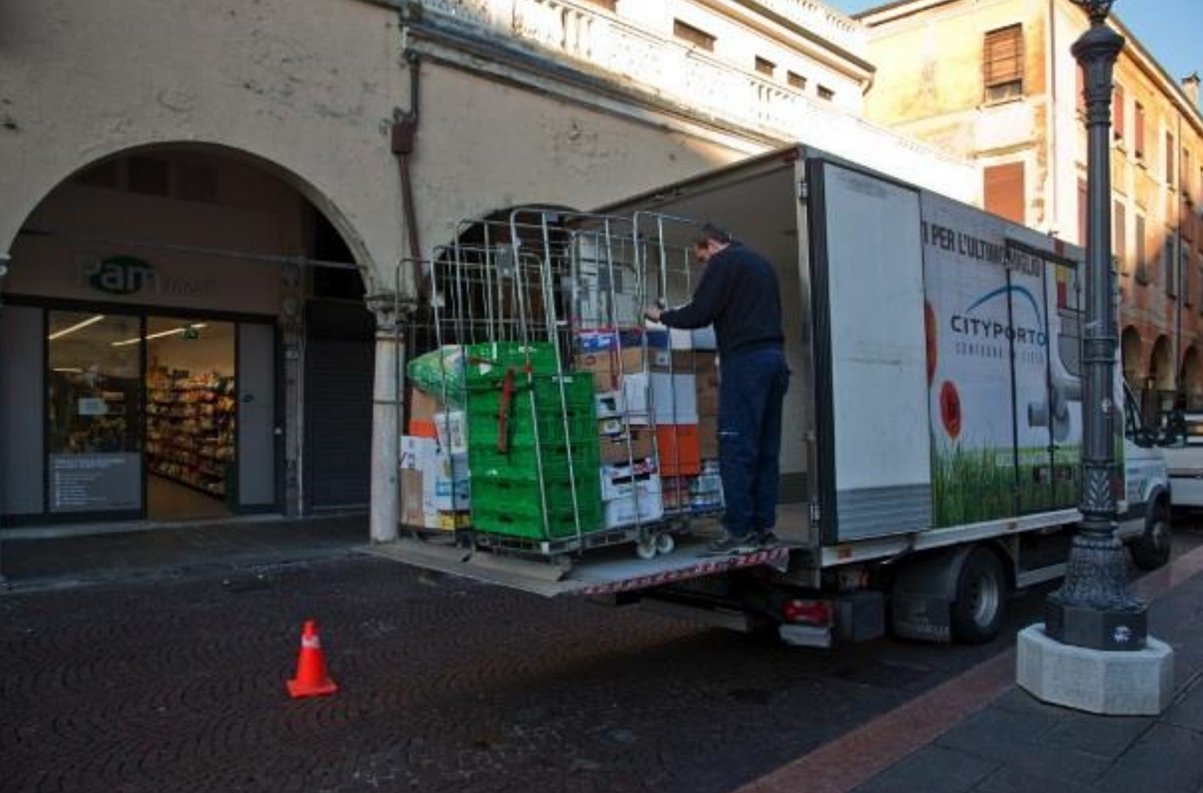Cityporto: Urban distribution service for the city of Padova

The Challenge
Urban city logistics is a pivotal facet of maintaining the daily functioning of a city and ensuring the well-being of its residents. This indispensable activity, however, is not without its challenges, as it often gives rise to negative externalities that include traffic congestion, noise pollution, and compromised air quality. These issues are further exacerbated by the substantial influx of commercial vehicles converging in the city centre. The Italian city of Padova was not an exception, with more than 100 trucks entering the city centre every day.
Various cities have, in the past, grappled with these challenges by introducing innovative solutions. While some of these initiatives demonstrated positive outcomes during their initial piloting and testing phases, the broader implementation and sustainability of these solutions have proven to be formidable hurdles. One recurrent obstacle has been the absence of viable business models, rendering it challenging to scale and adopt these innovative approaches on a larger scale. Unfortunately, many of these solutions falter and cease operations once the initial public funding support ends.
To address these pressing urban challenges, the city of Padova in Italy has taken a proactive stance by implementing a groundbreaking urban delivery service known as Cityporto Padova, which embodies an innovative approach to urban distribution, addressing both immediate city challenges and contributing to broader regional/global logistics efficiency




